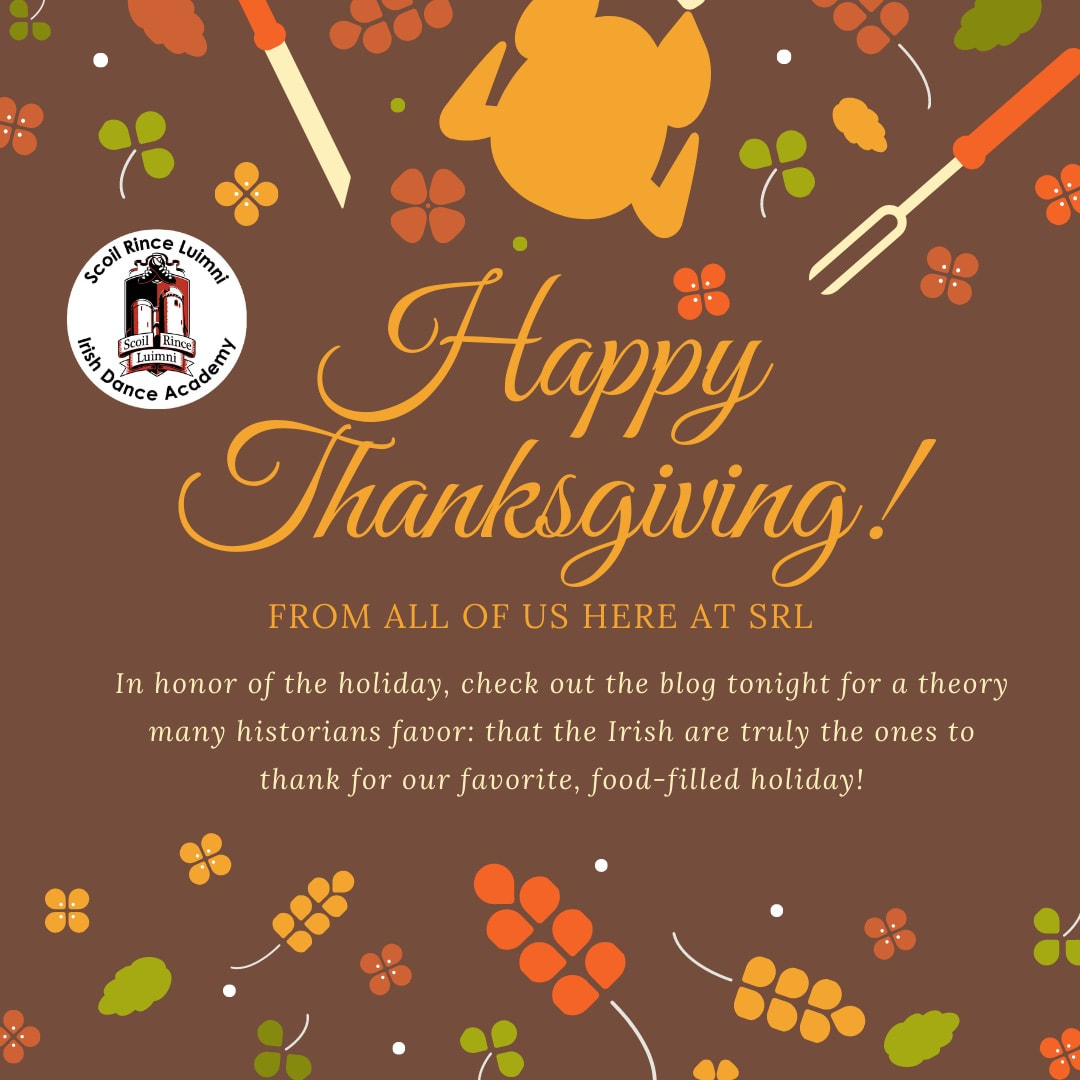|
A Very Irish Thanksgiving Okay, we don’t think we have to tell anyone this, but…they don’t really celebrate Thanksgiving in Ireland. (Though, it’s not just celebrated in America--as many as 17 countries have taken up the holiday!) Since the connection between Ireland and America is so strong, (and Ireland is home to tens of thousands of Americans, to say nothing of the 17% of Irish citizens that hold dual citizenship) you’ll probably still be able to find Thanksgiving dinner, but, overall, the Irish just don’t have the occasion on their calendars. However, they may be at least partially responsible for the celebration! We know what you were taught in elementary school: the first Thanksgiving took place in 1621 when the Pilgrims, fresh off the Mayflower and starving in their new home, befriended the Native American Wampanoag tribe. The Wampanoag shared their knowledge of the land to help the colonists survive, and, in a gesture of friendship and gratitude for a successful first harvest, the Pilgrims invited the Native Americans to share in a feast. But what if we told you that wasn’t necessarily the whole story? Just a few years ago, it was reported by The Boston Post—which had the largest circulation in the country in the 20s and 30s—that they had discovered a different iteration of Thanksgiving in their archives. According to the paper, and backed up by Irish-American historian Michael J. O’Brien, among others, that while a three day festival did occur with the Wampanoag, the real first Thanksgiving may have been celebrated 10 years later with the arrival of an Irish ship called The Lyon. Or, at the very least, the Irish saved the holiday from extinction! In February of 1631, in the midst of another lean winter that had further decimated the Pilgrim’s numbers (along with increased hostilities with the Native American tribes,) The Lyon docked at Nantasket (in modern day Hull, MA.) This ship had been sent, laden with provisions, by a Dublin merchant whose daughter was married to one of the colonists. Grateful for this saving grace, the Pilgrims dubbed the day after the ship arrived, February 21st, “A Day of Thanksgiving.” The date of Thanksgiving has been moved around throughout the years, so many scholars now believe that the 1631 celebration, rather than the 1621 celebration, is the true origin of the holiday. But why isn’t this story in our history books? It’s possible the anti-Irish prejudice in America that lasted well into the 20th century is to blame. When the story came out in the 1930s in The Boston Post, the writer failed to mention that the ship was Irish or even name the ship—despite being called out by numerous Irish organizations for the slight.
Trying to pinpoint the “first” of anything can be pretty subjective--some people think the first Thanksgiving really occurred in Virginia or even Texas—especially when the events happened centuries ago. In any case, while the Pilgrims were most definitely from England, it may be due in part to the Irish that these settlers were able to continue on through the generations to become Americans and establish Thanksgiving as a national holiday. So, whenever the first Thanksgiving truly occurred, we definitely have to thank the Irish for the fact we’re celebrating today! This post is part of a series. Read our last history post, all about the Irish origins of Halloween costumes and trick-or-treating, here. Check out the blog every Monday and Thursday for more posts about Irish history, dance culture, community news, and spotlights on our dancers, staff, and families—among other fun projects! And don’t forget to dance along with us on both Facebook and Instagram.
0 Comments
Your comment will be posted after it is approved.
Leave a Reply. |
SRL NewsFind all of our latest news on our Scoil Rince Luimni Facebook page! Categories
All
Archives
August 2022
|

 RSS Feed
RSS Feed